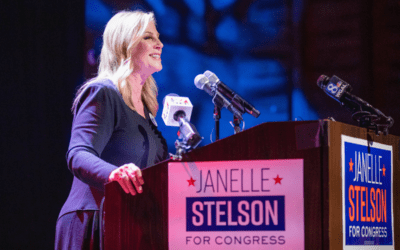
Between 2008 and 2018, Pennsylvania increased special education funding by $95 million; during the same period, however, the total cost of these programs skyrocketed by $1.7 billion.
When Pennsylvania Gov. Tom Wolf unveils his annual budget proposal in February, special education advocates will be paying close attention to see how he responds to their requests.
The Education Law Center (ELC), a nonprofit legal advocacy organization that advocates for students, sent a letter to Wolf earlier this month urging him to increase the state’s special education funding by $100 million in his fiscal year 2020-21 budget.
The letter was signed by more than two dozen advocacy groups, including The Arc Alliance and the ONE PA, as well as attorneys representing students with disabilities. The authors wrote that the “[c]urrent state funding of special education is inadequate” and pointed to the growing strain being placed on local school districts who have had to fill the void left by the state.
Between the 2008-09 to 2017-18 school years, Pennsylvania increased special education funding by $95 million, or about 10 percent. But during those same years, the total cost of special education to school districts skyrocketed by $1.7 billion, or 58 percent, according to an October 2019 report from ELC.
The state previously covered roughly one-third of costs, but that has slipped to less than one-fourth in the past decade, with Pennsylvania’s 500 school districts being forced to find a way to make up the difference.
“Since 2008, local districts have borne roughly 90% of the increased costs of special education services, the equivalent of $1.6 billion that local districts have had to make available through local taxes or other general education sources,” the letter reads. “Even with significant local funding increases, most districts still lack sufficient resources to ensure that students with disabilities are provided the services they are legally entitled to receive.”
The Upper Darby School District in Delaware County, for example, saw its special education expenditures more than double from roughly $20 million in 2008 to $43.6 million in 2018. The state only contributed an extra $1.1 million during that time, leaving the district responsible for more than $22 million and pushing the district’s portion of costs from just 57 percent to 77 percent.
Wolf previously advocated for and secured a $50 million increase in state special education funding last year, but education advocates believe more needs to be done to shift some of the burden away from local districts.
In their letter, the ELC called on Wolf to restore the state’s share of special education funding back to its 2008-09 level of 32 percent to ensure the sustainability and quality of special education programs. This would require an additional $465 million in state funding, according to the ELC.
Cheryl Kleiman with the Education Law Center in Pittsburgh told WHYY that while a district cannot legally reduce services for children based on funding restraints, costs do wind up being a factor.
“When schools don’t have the resources from the state to provide special education funding, and when they’re unable to raise those dollars locally, what that means is the student is paying the cost by not getting what they need in school,” Kleiman said.
Pennsylvania is home to roughly 300,0000 students with disabilities, she continued, and the consequences of those students losing access to needed services can be significant.
“When we have generations of students who don’t have access to an education, it impacts us in their ability to contribute, to our workforce, contribute to our community as engaged citizens and it has an impact on all of us not just the individual students that are sitting in a classroom today,” Kleiman told WHYY.
Without additional funding, local families could also continue to experience local tax increases, service cuts, and fewer resources, ELC’s 2019 report concluded.
“When adequate basic and special education state funding is not available, poorer districts—the communities least able to compensate for state underfunding through local tax increases—and the most vulnerable students within them are acutely harmed.”
Because school districts’ largely rely on local taxes, such as property taxes, to fund education, the decrease in the state’s share of funding also disproportionately affects poorer districts.
“When adequate basic and special education state funding is not available, poorer districts—the communities least able to compensate for state underfunding through local tax increases—and the most vulnerable students within them are acutely harmed,” Reynelle Brown Staley, ELC’s policy director, told COURIER via email.
The ELC also called on Wolf to increase basic education funding by $400 million, which they say also impacts students with disabilities.
“Lack of state investment in basic education funding has eroded the resources available to all students, which increases the incremental investment required to meet the needs of students with disabilities,” Staley said.
Pennsylvania currently spends $15,798 per student, placing the state 9th overall, according to data from the U.S. Census Bureau. But that same Census data found that Pennsylvania tied for 43rd in the nation in state share of education funding, with the state’s government responsible for providing only 38.7 percent of spending on education. Nationwide, states are responsible for 47.1 percent of education funding on average, leaving Pennsylvania almost 10 full percentage points behind in its contributions.
Advocates also want Wolf to revise the state’s special education funding formula to better account for district poverty and to extend the state’s “tiered” special education funding system— which allocates money based on the severity of students’ disabilities—to charter schools, in order to prevent them from discriminating against children with disabilities or taking advantage of the state’s funding mechanism. Under current Pennsylvania law, charter schools are not required to use special education funding on special education students. Reforming the funding formula would better ensure that money allocated for special education students is actually spent on them.
“All public schools serving children with disabilities, including charter schools, also should receive tiered funding based on the needs of the students they serve,” the letter reads.
ELC sent the letter after the state’s Special Education Funding Commission, a 15-member panel of lawmakers and state officials, postponed delivering a report on how Pennsylvania can more equitably distribute special education funding among districts. Originally due by November 30, that report has been postponed to April.
Because the state legislature did not “fulfill its mandate,” Staley said, “it is up to the governor to take the lead on special education funding reform.”
Whether Wolf meets advocates’ requests remains to be seen.
“There’s been no greater champion of investing in Pennsylvania’s public schools than Governor Wolf,” a spokesman for Wolf said in an emailed statement. “He will continue to fight for more resources for public school districts, including to support special education.”
Wolf’s budget proposal is being finalized and will be revealed on Feb. 4.

For Rep. Susan Wild, supporting PA families includes reproductive rights and much more
Rep. Susan Wild wants to be very clear with Pennsylvanians: Donald Trump is committed to taking away women’s reproductive freedom, but he is not...

School districts working with anti-LGBTQ groups can cost your kids’ schools millions
Parents across South Central Pennsylvania are worried about the potential financial impacts working with anti-LGBTQ groups may have on their school...

VIDEO: Trump distances himself from his anti-abortion views
Donald Trump appeared on WGAL on Tuesday and continued to distance himself from his anti-abortion views claiming that reproductive rights are now a...

VIDEO: Community pushback gets school board to rescind decision on denying gay actor’s visit
Cumberland Valley School Board offered a public apology and voted to reinstate Maulik Pancholy as a guest speaker a week after the board voted to...

VIDEO: Project 2025 brings nuclear armageddon back into vogue
Project 2025 is a titanic document, with plans ranging from cutting half of all government employees to targeting reproductive rights on a scale...





